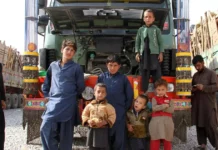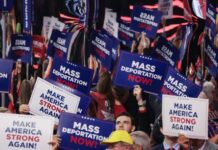 The USCIS has announcedthat the cap for the H-1B visa has been reached for the fiscal year (FY) 2014. The 65,000 regular cap was reached on April 5 and on April 8, the USCIS also received more than 20,000 H-1B petitions filed on behalf of persons exempt from the cap under the advanced degree exemption. As a result the USCIS will not accept H-1B petitions subject to the FY 2014 cap or the advanced degree exemption henceforth for the mentioned fiscal year.
The USCIS has announcedthat the cap for the H-1B visa has been reached for the fiscal year (FY) 2014. The 65,000 regular cap was reached on April 5 and on April 8, the USCIS also received more than 20,000 H-1B petitions filed on behalf of persons exempt from the cap under the advanced degree exemption. As a result the USCIS will not accept H-1B petitions subject to the FY 2014 cap or the advanced degree exemption henceforth for the mentioned fiscal year.
The next step is to conduct a computer-generated random selection process, also known as the lottery for all FY 2014 cap-subject petitions received through April 5, 2013. The selection process for advanced degree exemption petitions will be conducted first. All advanced degree petitions not selected will be part of the random selection process for the 65,000 limit. Due to the high number of petitions received, the USCIS has not yet announced the exact day of the random selection process. Moreover the, USCIS has not provided any information regarding the exact number of petitions that it has received.
The news only confirms the impending sense of anxiety that affected skilled potential workers and US employers throughout the past weeks, knowing fully well that the overwhelming number of petitions would again mean a large number of posts in US firms would not be filled by skilled professionals due to the cap placed by the Congress on the number of yearly allotted H1B visas.
Needless to say, this has important implications, not just for these workers and their potential employers, but also for the economy and the job creation scene in the US. While on the one hand it is indication that there are jobs in the US, which is good news considering the fact that there are still many who are facing the effects of recession. On the other hand the lack of skilled laborers amongst the US citizens is indeed alarming, to say the least.
Mr. Brad Smith, (the general counsel Microsoft) says in his blog that, “This is a problem that adversely affects every industry all across the US. The American economy creates 120,000 new computer-related jobs annually that require a bachelor’s degree, but we are currently producing about 51,000 graduates with a degree in computer science each year.”
There is of course renewed speculation about the problems of not having enough skilled workers for vacant positions in the US. This allied with the fact that the situation hampers the economy and the process of indigenous entrepreneurship and in an indirect way also encourages US firms to outsource their jobs.
The solution to this dilemma lies in a two-fold process of improving immigration laws which can integrate more high skilled labor into the country while at the same time developing a work force that is more skilled, within the country to tackle future such problems.
A country needs to be secure in the knowledge that its economy can gallop to far off goals if it takes along the best of the world with it. Restricting immigration policies, even to the best of the minds can only make the process go back, not forward.
The question is whether, based on this demand, the government will actually change the H1B cap or completely abandon the idea of a cap. That remains to be seen.
Shah Peerally is Managing Attorney, Shah Peerally Law Group PC
Shah Peerally






